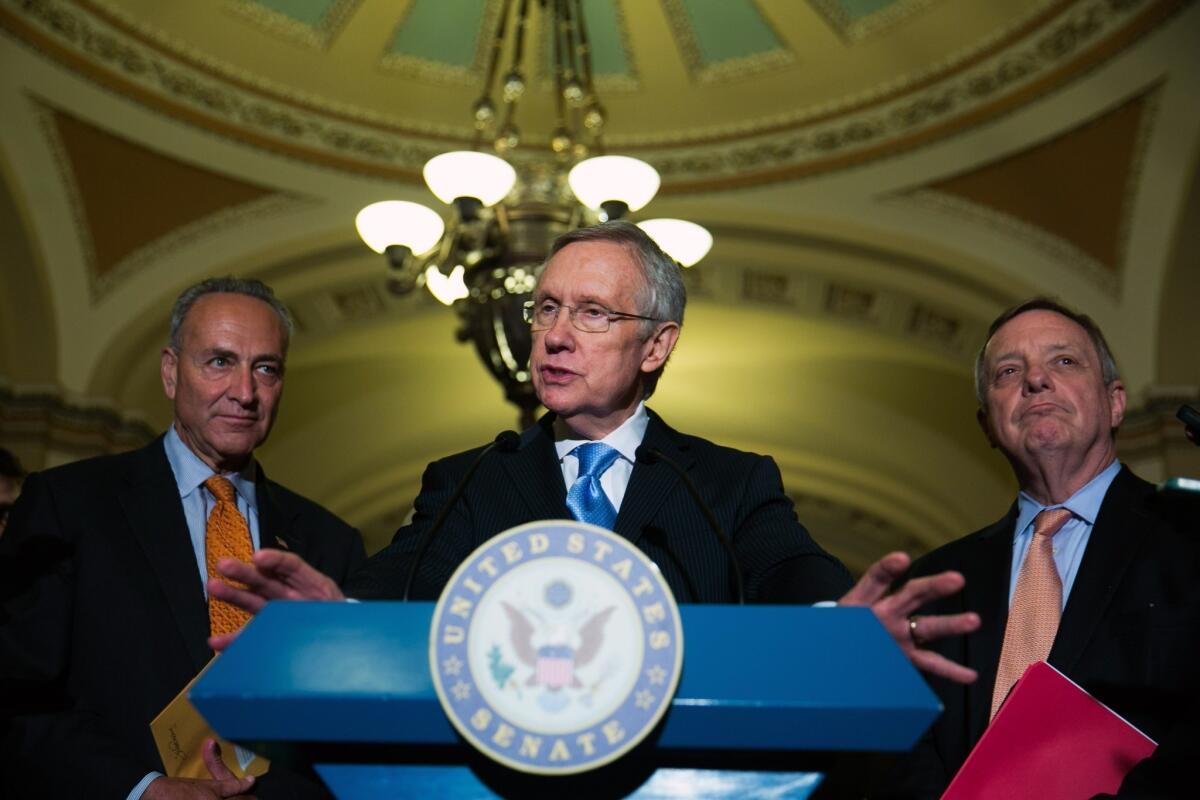A sign of hope on Senate filibusters

- Share via
The Senate averted a partisan meltdown Tuesday when Republicans agreed not to block votes on several White House nominees and Democrats dropped their plan to ban filibusters on key executive branch positions. That’s a good thing, at least on first glance. But the peace in the Senate is an uneasy one, given the air of mutual distrust between the two parties’ leaders. And it’s not clear yet whether the filibuster abuse that has become the norm in the Senate has been stopped or merely suspended until the next logjam.
The deal cleared the way for seven disputed executive branch nominees to receive up-or-down votes, most notably Richard Cordray, President Obama’s choice for director of the Consumer Financial Protection Bureau. Republicans had filibustered Cordray’s nomination in 2011 and pledged to block it again this year — not because he wasn’t a good choice but because they object to the bureau and want to undermine it.
By agreeing to back down on Cordray, Republicans seemed to recognize that they’d taken the filibuster too far. Similarly, they agreed not to carry out filibusters that threatened to incapacitate the National Labor Relations Board and the Export-Import Bank, regulatory agencies that some conservatives despise. In return, Obama withdrew the nominations of two Democrats who’ve served on the labor board without Senate confirmation for the last year and a half, and submitted two new names for expedited votes.
In theory, there’s nothing wrong with using the filibuster as a last resort to force the majority to spend more time scrutinizing nominees and seeking consensus on major bills. But in recent years it’s become a fact of daily life, a tool that Senate minorities have used far too regularly to handicap administrations and subvert laws they don’t like. The result is a vicious cycle of distrust, with Republicans blocking bills and nominees from coming up for debate and Democrats seeking to cut off debate before it begins.
A modest filibuster compromise in January between Senate Majority Leader Harry Reid (D-Nev.) and Minority Leader Mitch McConnell (R-Ky.) offered the chance to improve matters. Yet Republicans continued to block votes on nominees and to hold them hostage to their legislative demands, forcing the president to obtain a supermajority vote for his picks, not the simple majority the Constitution requires.
This page has argued since President George W. Bush’s tenure that the filibuster has gotten out of hand and should be eliminated. Tuesday’s deal, reached after a rare private meeting by 97 members of the Senate, is a hopeful sign that lawmakers can rein in their dysfunctional impulses. But Reid reserved the right as part of the deal to try to end filibusters on White House nominees, and if the GOP continues to equate “advice and consent” with “obstruct and extort,” he shouldn’t hesitate to do so.
More to Read
A cure for the common opinion
Get thought-provoking perspectives with our weekly newsletter.
You may occasionally receive promotional content from the Los Angeles Times.






